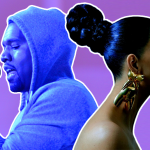
Internet users (especially on TikTok) became the self-appointed jury in Johnny Depp’s defamation trial against ex-wife, Amber Heard. Hell, they became judge and executioners too. Memes and clips from the public trial footage abound. The weight of crowd favour has #justiceforjohnnydepp way outpacing #justiceforamberheard in the popularity stakes. The case’s public footage is a gold-mine for content creators, and even businesses are weighing in on the battle. It’s all fair game, right? Or is something more sinister going on? With a verdict from the actual jury due any day now, we need to examine the social damage Depp v Heard has done.
This trial isn’t about guilt, only reputation
Something that’s been lost in the social media commentary is that Depp v Heard is not a criminal case. The purpose of the trial is not to confirm or deny that one party has been the primary perpetrator of intimate partner violence. Instead, Depp is suing Heard for $50 million in damages because her 2018 (ghost-written) op-ed in the Washington Post implied she was the victim of Depp’s abuse, and Depp believes this public accusation damaged his career. Heard is countersuing Depp for $100 million, because his lawyers described her claims as false which she thinks this has damaged her career.
Here are two people who earn enormous amounts of money, blaming each other for reduced opportunities to earn more money. Australian lawyer and TikTok commentator Jahan Kalantar doesn’t think either party will win. But of course, by default, the trial has become the search for a violent primary aggressor within a murky, destructive relationship. After all, defamation isn’t defamation if you’re telling the truth, right?
Talking about Intimate Partner Violence
What does it mean for victims of intimate partner violence to be watching this case unfold and be encountering the vitriolic, meme-ified reactions of hordes of onlookers? What messages will victims be receiving?
There are plenty of awful ways in which domestic bullies might use Depp vs. Heard against their targets. The threats aren’t hard to imagine: “If you tell anyone, I’ll sue you for defamation!” and “You’re the one abusing me!” And what of the gendered ammunition? “See! It’s not only men who are the abusers! They’re victims too, you know!” This is true and is an important counterbalance to gender-based assumptions. But there’s nothing good about weaponizing this fact against non-male victims of violence. Few things are scarier than hearing this fact used as an excuse by an abuser who believes they’re the victim – while they may have been a victim in other contexts, it doesn’t excuse abusive behaviour they perpetuate.
If men are encouraged to come forward as victims of domestic violence because of Depp’s example, good. Many women, however, are receiving a stream of devastatingly negative messages from the social media pile-ons. Things like: accuse and be sued. And worse: accuse and be lampooned, degraded, written-off and mocked by the rest of society. Be likened to Amber Heard. The weight of the law is one thing; the weight of popular opinion is another. Are we shaping local communities where victims (regardless of gender) can feel safe to come forward and be taken seriously? Where offenders can come forward, confess, and work towards change? The meme-ification of this whole event, and the binary lines upon which its playing out, can only compound the negative effects of the case itself.
Intimate Partner Violence in Australia
In Australia, it’s disturbingly common for women to be misidentified as primary aggressors in domestic situations where they’re actually victims. According to Victoria Police, it happens in 12% of incidents; a 2017 study by Melbourne University found that 48% of women in one support context had been incorrectly identified by police as primary aggressors. Sometimes, victims don’t ‘look’ or behave in stereotypical ways, and police are obliged to nominate a ‘primary aggressor’ in reports even when they’re uncertain. A 2021 report by Victoria’s Family Violence Reform Implementation Monitor states that the three key factors in misidentification of victim as aggressor are (1) the perpetrator’s manipulation of the system; (2) misinterpretation of survivor’s presentation and characteristics; and (3) victim survivor’s use of self-defence or violent resistance. Misidentification can have life-destroying ramifications for those wrongly accused.
It’s clear that interpreting contexts of domestic violence requires sensitivity, careful listening and keen insight. Simplistic judgments cast in social media contexts that reinforce our own confirmation biases do nothing to foster this sort of maturity in our communities.
Fan solidarity?
Thanks to Depp v Heard, masses of people are interested in the legal system like never before. Judge Judy only wished for this kind of fame! And sure, the desire to support someone we identify with, especially someone who we think has been wronged, is understandable. It’s even laudable. But when solidarity with one person is expressed through the belittling, humiliation or defamation of another—that’s a problem. Ironically, many of the comments about the trial by fans have been defamatory too.
Whether you believe Johnny Depp’s version of events or Amber Heard’s, nicknames like “Amber Turd” don’t do anything for the cause of justice or even rehabilitation. It feels great to team up with other people to fight for what appears a just cause. But how we fight is as important as what we fight for.
There are no winners here
We can’t change the fact that this trial played out publicly. Will we use this situation to become more aware of the complexity of human relationships, more determined to foster healthy partner relationships, and more willing to talk about mental health and relationship breakdown? Or have we simply taken the opportunity to attend a public execution and revel in the entertainment?
A courtroom is designed to look at the facts of a situation, and to decide the most trustworthy interpretation based on evidence. It is their job to find the line over which one person has stepped too far. This is our social mechanism for making sense of human controversy. In this case though, the importance of establishing the accuracy of each party’s assertions—however complex, unpleasant and bloody tangled the reality —is being drowned out by a noisy crowd hungrier for entertainment than for a better world.



Comments are closed.